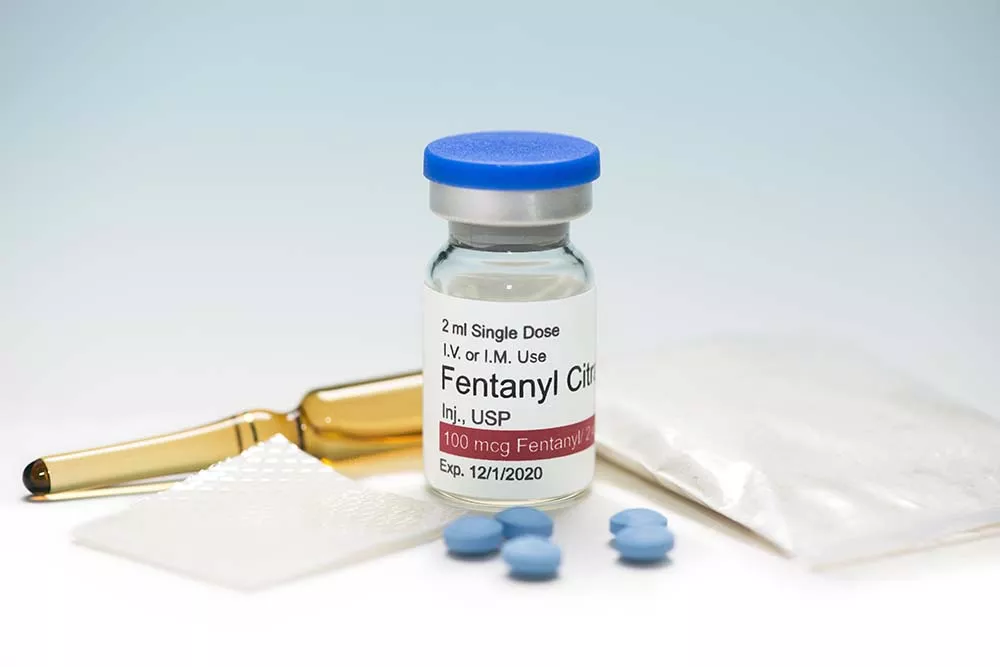Methamphetamine (meth) is a synthetic stimulant that is highly addictive that affects the central nervous system. Crystal meth is a form of the drug that looks like glass fragments or shiny, bluish-white rocks. Meth use can cause significant health problems, and long-term use that can even result in severe health complications and death.
Methamphetamine was developed by scientists in the early 20th century in an effort to improve the ADHD drug amphetamine. However, their drug turned out stronger than they expected, and it ended up being too strong for people to use safely without the risk of overdose or addiction. It is now labeled as a Schedule II drug, meaning that it has a high potential for addiction, but it is legal in certain contexts. Keep reading to learn more about how meth works, the effects it has on the body, and the treatment options available if you or a loved one is struggling with a methamphetamine addiction.
So what exactly makes meth so addictive? The reason this drug is so addictive is that it speeds up activity in the central nervous system, which causes users to feel euphoric, powerful, and alert. This euphoric feeling is the result of the release of a chemical in the brain called dopamine, which floods the parts of the brain that regulate feelings of pleasure.
Another reason meth is so addictive is that the effects can last from 6-18 hours, making the “high” much longer than that caused by other stimulants such as cocaine. In fact, many people choose meth specifically because of its lasting effects. Unfortunately, the powerful rush people get from using meth also causes many of them to get addicted right from the start, as they will do almost anything to feel that euphoric feeling once again.
How meth affects the body, and the type of euphoric rush it causes, depends on how the drug is used. Smoking or injecting meth typically creates a short but intense rush that lasts around 20-30 minutes followed by a much less intense high. Alternatively, snorting or swallowing meth generally leads to a longer, steadier high. Unfortunately, after the high can come a low that includes feelings of paranoia and numerous other negative effects on a user’s physical and mental health.
Meth can have profound effects on a user’s overall physical and mental health during and after using the drug. Keep reading as we explore some of the short and long-term effects meth can have on the mind and body.
Methamphetamine can have significant effects on an individual’s mental health, as even a small amount can cause a wide range of side effects. This is because meth actually changes a person’s brain chemistry, affecting their mood, rationality, and their ability to make sound decisions.
For new users, taking meth can cause various short-term symptoms including:
Unfortunately, long-term meth use can have more serious side effects (even after you stop taking it) including:
Even after a person stops taking meth, it can take some time for the brain to restore its dopamine circuits. Cognitive abilities that don’t rely much on dopamine will likely recover first, and symptoms like paranoia may take longer to disappear. However, some side effects like memory loss are usually permanent after using meth heavily and will never go away.
Since meth interacts with the body’s nervous system, it can also cause a variety of potentially dangerous physical side effects during and after use. These side effects can become particularly severe with long-term use of this drug.
Common short-term physical side effects of using meth include:
Physical effects of long-term meth use can be severe, with the most notable being extreme weight loss, skin abscesses, and severe tooth decay. Meth use can also increase an individual’s risk of developing Parkinson’s disease. Users who inject meth using a needle also have a higher risk of developing bloodborne viruses like hepatitis C and HIV. Other long-term health risks of meth use include:
Are you concerned that someone in your life may be using meth after noticing changes in their mood, behavior, or appearance? Some of the most common signs that an individual is using meth include:
These are just a few of the signs you can be on the lookout for indicating that a loved one may be using meth. Yet, if you suspect that a loved one has a meth addiction, what can you do to help them? The important thing to know is that meth is one of the hardest drug addictions to treat, so you shouldn’t try to help someone by yourself. Meth users need to find a professional counselor or drug treatment program in their area. To get more info on how to help a loved one struggling with addiction, visit FindTreatment.gov for local resources.
As we previously mentioned, methamphetamine addiction is one of the hardest drug addictions to overcome. In fact, without proper treatment or rehabilitation, the success rate for meth users to continue sobriety after three years is only 5%, and as many as 92% of meth users relapse at least once during their recovery process. This makes it imperative that an individual attempting to recover from a meth addiction get access to the proper treatment and rehabilitation programs.
While there are currently no government-approved medications to treat methamphetamine addiction, behavioral therapies have been shown to be extremely effective in helping people overcome their addiction. In particular, cognitive-behavioral therapy (CBT) can help patients recognize, avoid, and cope with situations likely to trigger drug use, and it can also help them manage withdrawal symptoms. The important thing to remember is that people can and do recover from methamphetamine addiction if they have access to effective treatment options. Feel free to contact us if you are struggling with a substance use disorder such as a methamphetamine addiction. We can help provide you with the resources you need to get you on the road to recovery.
 What You Need to Know About Fentanyl
What You Need to Know About Fentanyl
 How Long Do Suboxone Withdrawals Last?
How Long Do Suboxone Withdrawals Last?
 Signs and Symptoms of Drug Addiction – How to Tell if Someone Needs Help for a Drug Problem
Signs and Symptoms of Drug Addiction – How to Tell if Someone Needs Help for a Drug Problem